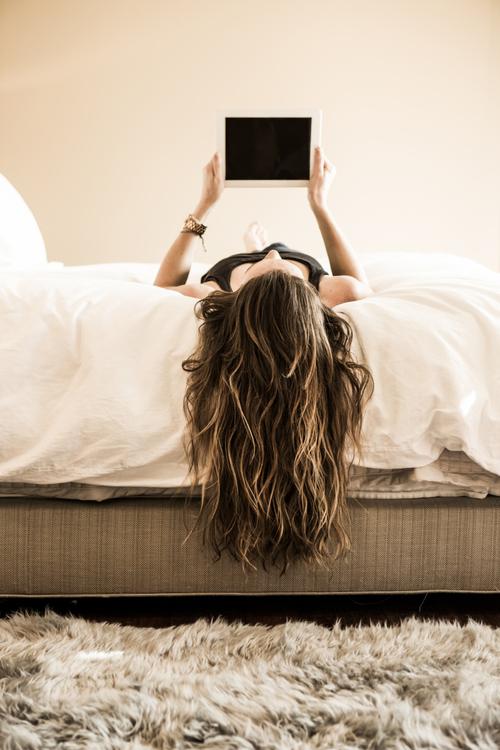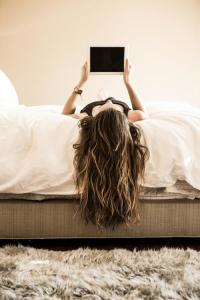Using iPads, Smartphones, Tablets Before Bed Is Worse For Sleep Than You Thought

For some time now, doctors and researchers have been saying the use of electronic devices like iPads, e-readers and smartphones before bed will cause you to have trouble falling asleep. However, browsing the web or reading from a backlit screen may be more dangerous than we ever thought, according to a new study backed by the National Institute of Health.
The researchers from Brigham and Women’s Hospital randomly assigned 12 participants to two groups; the first read LE e-books on an iPad four hours before they went to bed each night for five nights straight, while the second read printed books. After five nights, they switched it up; the first set read printed books before bed, and the second set was given e-readers. At the same time, researchers took data on how the participants responded to each type of stimulation.
As you might guess, participants using electronic devices took longer to fall asleep each night than those reading regular books, and were less sleepy before bedtime. However, they also spent less time in REM sleep (the phase that helps restore and recharge the body).
Related: 7 Ways To Stop Your Snoring
Digging deeper into the biological effects, the researchers noted that the iPad users secreted less melatonin, the hormone that should naturally rise at night and cause sleepiness. Due to the decreased melatonin levels, participants staring at the bright lights of their e-readers saw a delay in their circadian rhythm of more than an hour.
Light seems to shake up your internal clock. “We found the body’s natural circadian rhythms were interrupted by the short-wavelength enriched light, otherwise known as blue light, from these electronic devices,” says study co-author Anne-Marie Chang, PhD, an associate neuroscientist in BWH’s Division of Sleep and Circadian Disorders. “Participants reading an LE-eBook took longer to fall asleep and had reduced evening sleepiness, reduced melatonin secretion, later timing of their circadian clock and reduced next-morning alertness than when reading a printed book.”
Also worth mentioning, the men and women were groggier the next morning even after getting the recommended eight hours of sleep.
Researchers said that, although iPads were used in their study, this effect would likely be the same for any and all light-emitting gadgets — smartphones, laptops, kindles, tablets of all sorts, so on and so forth. Also according to the study, data from a representative survey of 1,508 Americans indicated a whopping 90 percent use some light-emitting device before bed.
Related: 10 Bedtime Rituals For Better Sleep
Is it any wonder we can’t seem to get adequate rest? Maybe not. “In the past 50 years, there has been a decline in average sleep duration and quality,” says study co-author Charles Czeisler, chief of BWH Division of Sleep and Circadian Disorders. “Since more people are choosing electronic devices for reading, communication and entertainment, particularly children and adolescents who already experience significant sleep loss, epidemiological research evaluating the long-term consequences of these devices on health and safety is urgently needed.





